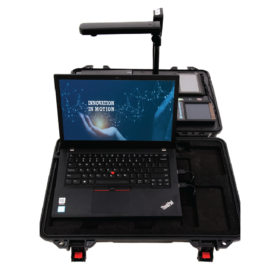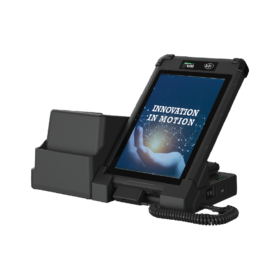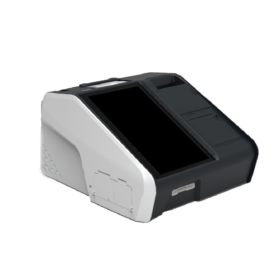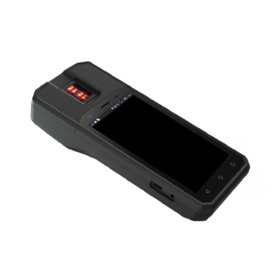
Transforming Democracy with E-voting
Elections are a crucial process in a democratic society providing citizens with a powerful means to shape the future of their nation. As we stepped into the digital age, the 20th century witnessed a rapid revolution in computing technology, which has affected every aspect of our lives, including elections. With all of the remarkable advances in technology, the evolution of electronic voting systems became possible. E-voting represents a contemporary approach to casting and counting votes in elections using digital technologies. It can involve various hardware and software solutions, including computers, voters’ enrolment and verification, voting machines, and possibly the use of the internet. E-voting improves election efficiency, accuracy, and accessibility by modernizing traditional paper-based methods.
That sounds pretty convincing, right? Considering the extensive benefits of e-voting along with the rise of digital transformation and the proliferation of mobile phones and tablets across the globe, beg the question: why do paper-based solutions remain the dominant form of voting?
In the following article, we will expound on the various benefits of e-voting and show why the digital election process has become indispensable in today’s age.
Countries Are Slowly Adopting E-voting
To keep up with technological advancement, e-voting systems are being developed and tested in various parts of the world. According to “International Idea”, the Global Institute for Democracy and Electoral Assistance, e-voting is currently being used globally in about 21% of countries such as the USA, Australia, Russia, Brazil, etc. at national and/or sub-national levels.
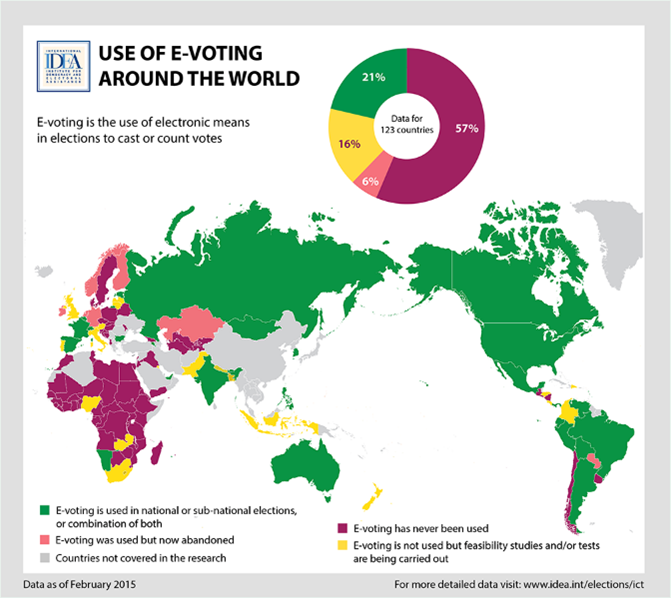
Figure 1: Use e-voting around the world. *1
Additionally, 16% of countries conduct tests to explore the possibility of implementing e-voting in future elections, including South Africa, New Zealand, Pakistan, Nigeria, etc. However, it is pertinent to point out that still 57% of countries have not yet adopted e-voting systems. This clearly shows that e-voting is still not the predominant voting method1.
How E-voting Can Improve the Voting Process
While there is a debate surrounding the implementation of e-voting, the benefits it offers are numerous. Here are some of the most significant ones:
- E-voting technology allows processes to be accelerated and data to be collected with greater accuracy. In populated countries like India, for example, e-voting speeds up the process as it eliminates the time required for ballot counting to declare election results. On top of that, voting results are less susceptible to human error.
- In countries where corruption is prevalent and the use of spoiled paper ballots or double voting occurs, it becomes difficult to count authentic votes, which often leads to violence. E-voting reduces this problem by providing a more secure and traceable voting process.
- With e-voting, people with disabilities can cast their votes easily and independently, protecting their right to anonymity by eliminating third parties voting on their behalf.
- E-voting reduces logistics costs, saving not only money but also time and allowing governments to allocate their resources more efficiently. The traditional way of printing and distributing millions of ballots to polling stations in different cities can be resource-intensive and inconvenient.
- E-voting increases accessibility for voters who are geographically distant from polling stations or living abroad and can potentially participate more easily through E-voting.
Toppan Gravity’s Cutting-Edge Solutions to Modernize Your Election Process
During the last 10 to 15 years, there have been efforts to enroll voters in biometric capture for verification every time an election is held, especially in African countries. The reasons are diverse and specific to each country. These countries, however, waste millions of dollars by enrolling voters repeatedly instead of enrolling them once and updating their information in one system before election day.
At Toppan Gravity, we believe that a unified national registry system is the most effective option. A unique and trusted database including biometrics would save a significant amount of time, effort, and money for many Electoral Committees. It allows focusing on modernizing the entire voting process—namely vote counting, tallying, and results publication.
During this year’s ID4Africa Conference, Toppan Gravity exhibited an electronic voting machine for the first time. The reactions at the booth among officials were mixed as expected; while some delegates were very enthusiastic and saw this as a target for the roadmap of their electoral management bodies, others looked at this technology with some reservations.
While introducing e-voting to countries that have not yet adopted it, Toppan Gravity helps shift negative perceptions of e-voting to more positive ones. Delivering inclusive support throughout the design, development, and implementation of e-voting solutions. Whether it’s providing quality voting kits or consumables, consulting, and advice to gradually modernize the voting process, we provide the tools to ingrain confidence in your elections.
___________________________________________________________________________
References:
1 Use of E-Voting Around the World | International IDEA

About Toppan Gravity
Toppan Gravity is a subsidiary of Toppan Leefung, serving as the international development arm of the TOPPAN Group in the security domain. Being part of the most prestigious conglomerate in the industry with decades of experience and multiple well-known references, Toppan Gravity benefits from the TOPPAN Group’s strong market position and extensive expertise. As a global solutions provider primarily focused on the payment and Identity industries, Toppan Gravity aims at developing the next generation of virtual and physical security solutions.
For more information, visit www.africa.toppangravity.com | www.toppangravity.com or contact info@toppangravity.com.
About the TOPPAN Group
Established in Tokyo in 1900, the TOPPAN Group is a leading and diversified global provider committed to delivering sustainable, integrated solutions in fields including printing, communications, security, packaging, décor materials, electronics, and digital transformation. The TOPPAN Group’s global team of more than 50,000 employees offers optimal solutions enabled by industry-leading expertise and technologies to address the diverse challenges of every business sector and society and contribute to the achievement of shared sustainability goals.
For more information, visit www.holdings.toppan.com/en/ or contact www.linkedin.com/company/toppan/







